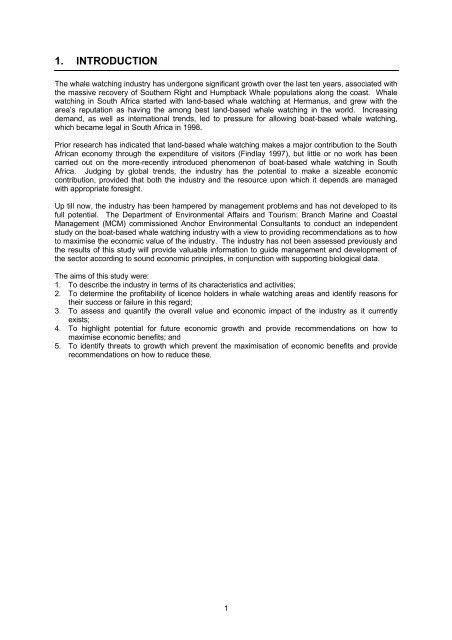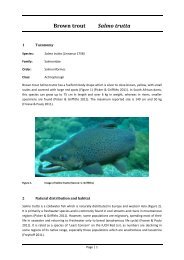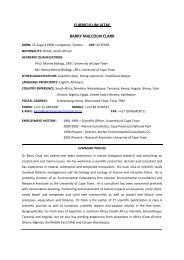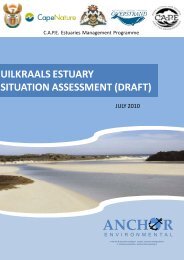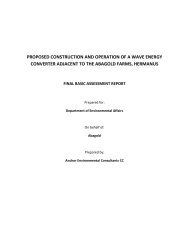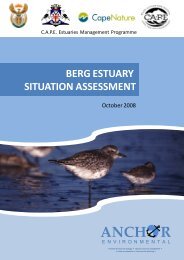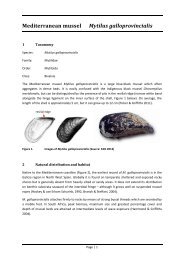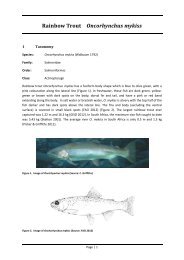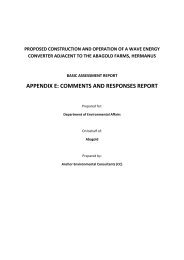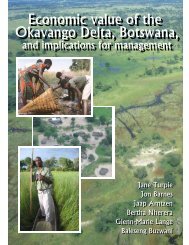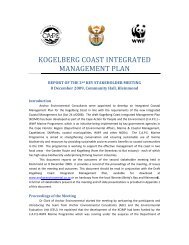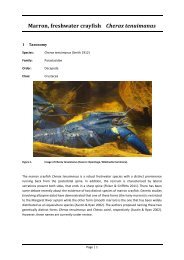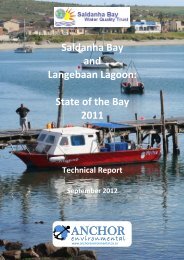Download PDF (2.5MB) - Anchor Environmental
Download PDF (2.5MB) - Anchor Environmental
Download PDF (2.5MB) - Anchor Environmental
Create successful ePaper yourself
Turn your PDF publications into a flip-book with our unique Google optimized e-Paper software.
1. INTRODUCTION<br />
The whale watching industry has undergone significant growth over the last ten years, associated with<br />
the massive recovery of Southern Right and Humpback Whale populations along the coast. Whale<br />
watching in South Africa started with land-based whale watching at Hermanus, and grew with the<br />
area’s reputation as having the among best land-based whale watching in the world. Increasing<br />
demand, as well as international trends, led to pressure for allowing boat-based whale watching,<br />
which became legal in South Africa in 1998.<br />
Prior research has indicated that land-based whale watching makes a major contribution to the South<br />
African economy through the expenditure of visitors (Findlay 1997), but little or no work has been<br />
carried out on the more-recently introduced phenomenon of boat-based whale watching in South<br />
Africa. Judging by global trends, the industry has the potential to make a sizeable economic<br />
contribution, provided that both the industry and the resource upon which it depends are managed<br />
with appropriate foresight.<br />
Up till now, the industry has been hampered by management problems and has not developed to its<br />
full potential. The Department of <strong>Environmental</strong> Affairs and Tourism: Branch Marine and Coastal<br />
Management (MCM) commissioned <strong>Anchor</strong> <strong>Environmental</strong> Consultants to conduct an independent<br />
study on the boat-based whale watching industry with a view to providing recommendations as to how<br />
to maximise the economic value of the industry. The industry has not been assessed previously and<br />
the results of this study will provide valuable information to guide management and development of<br />
the sector according to sound economic principles, in conjunction with supporting biological data.<br />
The aims of this study were:<br />
1. To describe the industry in terms of its characteristics and activities;<br />
2. To determine the profitability of licence holders in whale watching areas and identify reasons for<br />
their success or failure in this regard;<br />
3. To assess and quantify the overall value and economic impact of the industry as it currently<br />
exists;<br />
4. To highlight potential for future economic growth and provide recommendations on how to<br />
maximise economic benefits; and<br />
5. To identify threats to growth which prevent the maximisation of economic benefits and provide<br />
recommendations on how to reduce these.<br />
1


